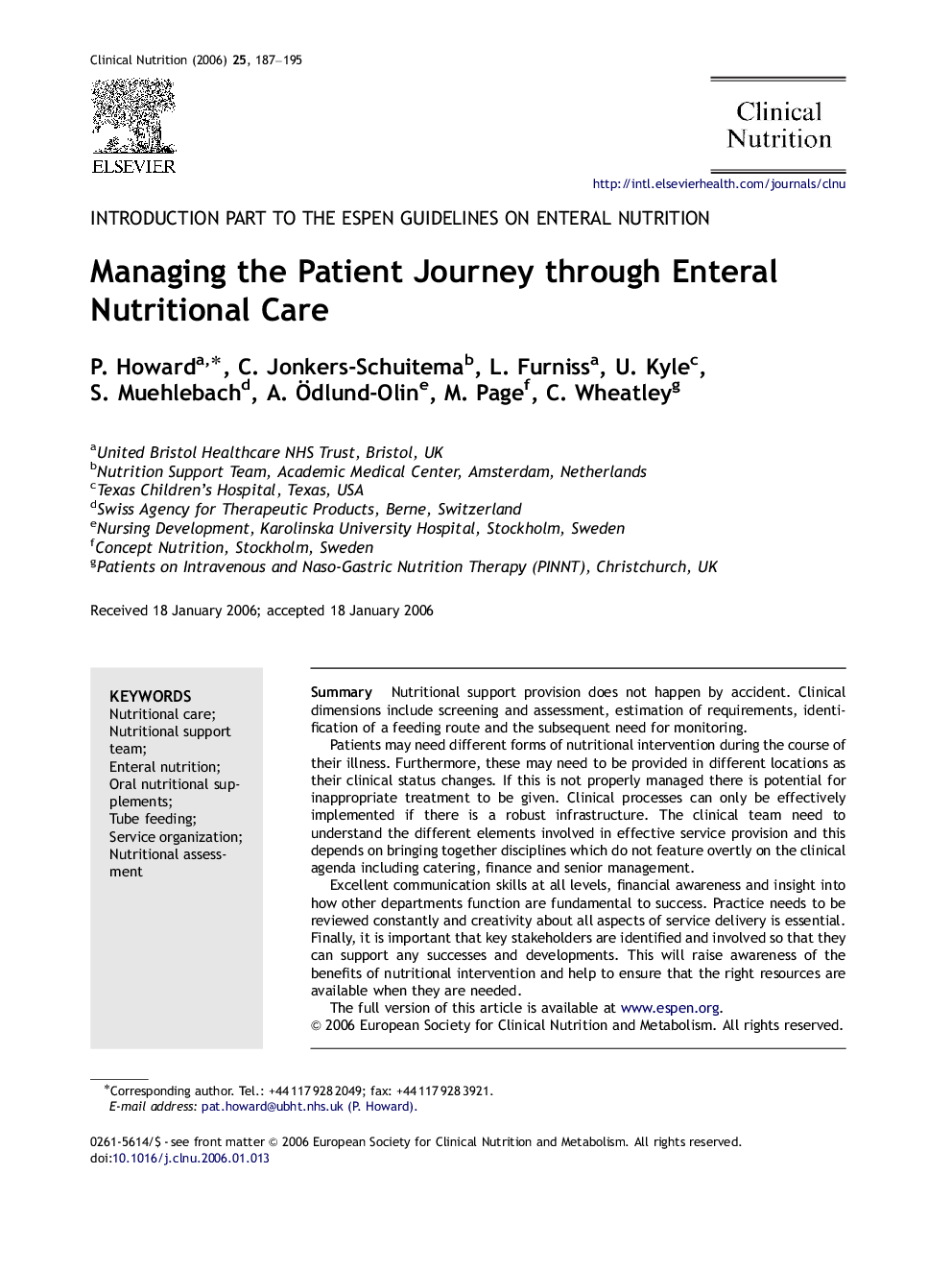| Article ID | Journal | Published Year | Pages | File Type |
|---|---|---|---|---|
| 2683454 | Clinical Nutrition | 2006 | 9 Pages |
SummaryNutritional support provision does not happen by accident. Clinical dimensions include screening and assessment, estimation of requirements, identification of a feeding route and the subsequent need for monitoring.Patients may need different forms of nutritional intervention during the course of their illness. Furthermore, these may need to be provided in different locations as their clinical status changes. If this is not properly managed there is potential for inappropriate treatment to be given. Clinical processes can only be effectively implemented if there is a robust infrastructure. The clinical team need to understand the different elements involved in effective service provision and this depends on bringing together disciplines which do not feature overtly on the clinical agenda including catering, finance and senior management.Excellent communication skills at all levels, financial awareness and insight into how other departments function are fundamental to success. Practice needs to be reviewed constantly and creativity about all aspects of service delivery is essential. Finally, it is important that key stakeholders are identified and involved so that they can support any successes and developments. This will raise awareness of the benefits of nutritional intervention and help to ensure that the right resources are available when they are needed.The full version of this article is available at www.espen.org.
